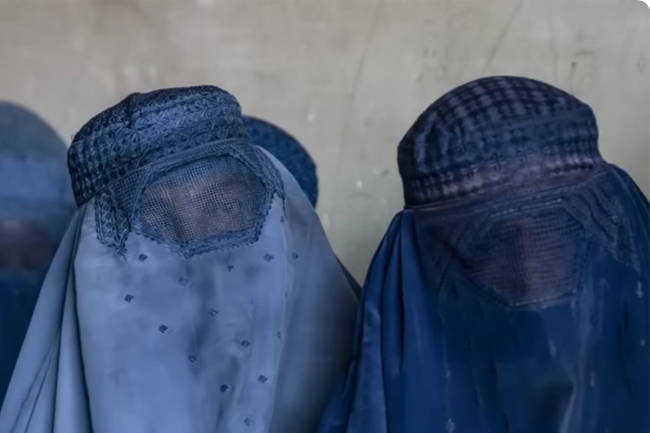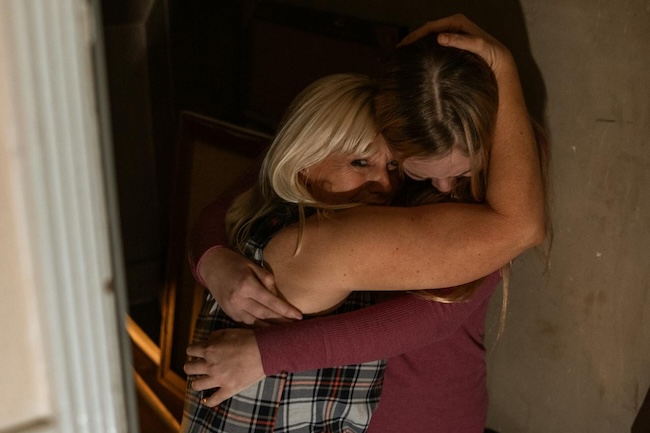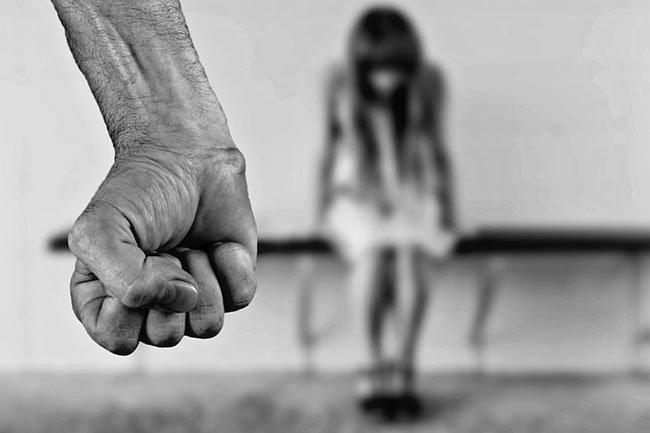"Everybody would harass me," said a young woman in the small city of Zahedan, Baluchistan, a small province in the south-east of Iran. The borders of Afghanistan and Pakistan not far away.
We were sat in her small kitchen with a dim light hovering above us.
There was a gas stove sat in the corner of the room and the rough stone floor was covered in an old rug, an attempt to keep some warmth in the room.
The furnishings were bare, the young woman and her husband were just starting out in their home as a newly married couple.
This was not her first marriage, it was her second. She had divorced her first husband; a taboo for women in Iran, particularly in highly conservative Baluchistan.
She had prepared me a plate of chicken and rice, typical for the region and as we sat in her kitchen to eat in the early hours of the morning, she explained just how difficult it was to be a woman in Baluchistan.
Baluchistan is a culturally autonomous province in the south-east of Iran. It shares part of its cultural zone with both Afghanistan and Pakistan with the Baluch being the main ethnic group in the region. Most are Sunni Muslims, in contrast to the rest of Iran where the majority are Shia Muslims.
I was in Iran as part of my work on raising awareness about violence and discrimination against women and girls around the world. I had interviewed both women and men in the north of the country, where virtually everyone told me that, "if I really wanted to know about violence against women in Iran, I should go to Baluchistan".
I took the bus from Tehran, the capital of Iran down to Zahedan, the main city in Baluchistan where I spent just under a week. I then moved on to the costal town of Chabahar where I spent a similar amount of time. In both cities, the streets were dusty and seemed to have more in common culturally with Pakistan, than they did with Iran.
The men were adorned in traditional Pakistani clothes, some had long scarves wrapped around their heads, similar to images I had seen on television of the Taliban. The women were also dressed in traditional Pakistani clothing and all had their hair covered with bright, colourful scarves. Set against the brown, dusty desert with the bright blue Gulf of Oman sparkling in the distance, the image was striking.
Yet, there was a very apparent air of conservatism which felt slightly unnerving. It felt intense. Though it was hard to distinguish whether the intensity came from the conservatism or from the hot desert sun. I felt it was most likely from the former.
Back in the kitchen of the young Baluch woman, she was telling me how she wanted to leave Iran. "It’s too difficult to be a woman in Baluchistan," she said.
"Women face sexual harassment on a daily basis," she said, something that I personally witnessed. Men hissing, leering and disparaging women without shame.
She explained an incident where a man on a passing motorbike had reached out to grope her. She was shaken and immediately called the police. However, the police only told to change her clothing.
"They couldn’t see what I was wearing," she said. "They always just blame women. I didn’t go outside for a week after that."
Everyone that I met in Baluchistan reported sexual harassment, both men and women and all said that it was widespread. One man in Chabahar said how he always accompanied his female relatives when they left the house, "because of this problem".
Another man explained how his friends liked to harass women, "to feel power."
"The men are really wild here," said one woman. She didn’t mean it in a good way.
Though in Baluchistan it is not just the threat of sexual harassment or the lack of protection from the police that has made life difficult for women. "Cultural" norms prevent women from having the same rights as men or from having the same sexual freedoms.
The young woman explained how women are only allowed to have sexual relationships within marriage, women who have sexual relationships outside of marriage are considered to be "whores".
A rule that also applies to divorced women. It is believed that once a woman has already had sex, she now wants to have sex with everyone, in the same way that a "whore" would.
"After I was divorced," she said, "everyone wanted to have sex with me, even family members were harassing me. I was harassed incessantly. It is because of this that I got married again."
It's grossly unfair and unreasonable for it to be accepted and believed that a divorced woman wanted to "have sex with everyone" and that would in turn make it acceptable to harass her.
Though it was equally shocking that there were men that could actually believe that it was in any way acceptable to sexually harass a woman who had been divorced. Which compelled her to think that she had to get married again just to escape the harassment.
Over the next several days that I spent with this young woman and learnt more about the situation for women in Baluchistan, it became more and more apparent why she wanted to leave Baluchistan. The highly unfair and violent attitudes towards women was an obvious reason. However, it was also because of the widespread sexual harassment and the failure of their society and police force to stop it.
It was about the fact that men had all the rights and women had none.
How it would be to live where it is considered okay to harass and degrade women on the basis that they are no longer virgins? Where a woman’s worth is not given equal value to men and where it is actually deemed acceptable in certain circumstances to cause harm to a woman.
It was not just in Baluchistan that these problems existed. That this problem of incessant sexual harassment can be found throughout the world to different degrees.
But nevertheless, it is a global problem.
As I sat in the small kitchen of this young woman in Baluchistan, I wondered when this very serious problem of sexual harassment, discrimination and violence against women in Baluchistan and around the world, was going to stop. Why were there so many good men who said nothing and why did women so often tolerate this?
What is needed is a shift in attitudes. There needs to be zero tolerance for sexual harassment and "cultural" attitudes that deem it acceptable to harass certain types of women. Once such bad behaviour is no longer accepted, then it is unlikely that it will continue, at least at the rate it does now.
It starts with each one of us, making a change in what we accept and what we tolerate. By becoming less tolerant of such violent and aggressive attitudes towards women and girls, we will start to see much less of it.
It is essential that this happens because this very serious problem of sexual harassment is causing harm in far too many women’s lives.
Johanna Higgs is an anthropologist and founder of Project MonMa, which advocates for women’s rights around the world.
 This work is licensed under a Creative Commons Attribution-NonCommercial-NoDerivs 3.0 Australia License
This work is licensed under a Creative Commons Attribution-NonCommercial-NoDerivs 3.0 Australia License
Support independent journalism Subscribe to IA.












